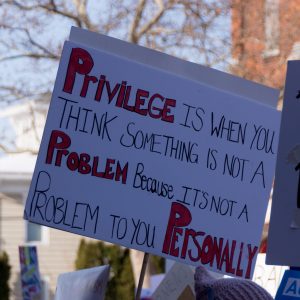 TORONTO — The Toronto office of the Canadian Council for Reform Judaism (CCRJ) will close May 31 as part of a larger recession-driven restructuring by the Union for Reform Judaism (URJ), the congregational umbrella for the Reform movement.
TORONTO — The Toronto office of the Canadian Council for Reform Judaism (CCRJ) will close May 31 as part of a larger recession-driven restructuring by the Union for Reform Judaism (URJ), the congregational umbrella for the Reform movement.
Rabbi Sharon Sobel
The Toronto office of the Canadian Council for Reform Judaism (CCRJ) will close May 31 as part of a larger recession-driven restructuring by the Union for Reform Judaism (URJ), the congregational umbrella for the Reform movement.
“Taking the opportunity to reshape our organization structurally is something we hoped to do in any case, but the financial situation made it an obligation,” New York-based URJvice-president Rabbi Stacy Offner told The CJN in a phone interview last week.
“We had a $5-million hit because the funds were lacking,” she said.
The restructuring was based on a projected 20 per cent decline in available revenues, compared to the URJ’s 2008-2009 operating budget of $25 million.
Congregations have had difficulty paying their dues, which comprise the lion’s share of the URJ budget, according to a JTA report in February.
The CCRJ and other regional lay leadership councils will continue to exist, noted Rabbi Offner, who said she is “optimistic about our future structure.”
There will also be a small office in Toronto to deal with specifically Canadian needs, including the issuing of tax receipts. It will be housed in the Camp George office.
The CCRJ – which has been headed for the past nine years by Rabbi Sharon Sobel – is the only Canadian regional office among 14 in North America that are being dismantled. The URJ also eliminated 60 full-time-equivalent positions in North America in January, when two of the CCRJ’s five staff members had to be laid off.
The CCRJ serves 26 Reform congregations across the country and has provided services that include programs, long-range planning, and working with rabbinic search committees as well as with congregations in crisis.
The URJ is setting up “an entire new system,” said Rabbi Sobel, executive director of the CCRJ and ARZA Canada (Reform’s Zionist arm here), which will continue to operate independently, but without Rabbi Sobel.
In a letter to the Canadian Reform movement detailing the upcoming changes, Rabbi Sobel lauded the lay leaders
she has worked with for their commitment and enthusiasm and said she looked forward to the future they were building for the movement.
Rabbi Offner expressed regret over the layoffs initiated by URJ. Addressing the situation in Canada specifically, she said that Rabbi Sobel “has been a great leader of Reform Judaism and we feel dreadful about losing her, but we have an economic reality that we have to reckon with… that is larger than we are. We can’t control it. We can only respond to it.”
Instead of the current regional URJ offices, congregations will be served by four “congregational support centres.”
In Canada, congregations from Victoria to Regina will fall under the aegis of a centre in Los Angeles, while other Canadian Reform congregations will be served by its counterpart in Chicago. The other two centres will be based in New York and Atlanta.
“I think it’s something that was necessary and important in terms of moving us into the future,” Rabbi Offner said.
“We hope the congregations are affected in a positive way.”
Carole Sterling, president of the CCRJ and – until June 7, – of Temple Sinai Congregation, said there is “some uncertainty” over the change, but also “a lot of excitement.
“We do believe it will be a much better model for delivery of service.”
She added that, because of the timing of the economic downturn, its effect on Canadian congregations’ membership renewals won’t be fully apparent until next year.
In related news, the Reform movement’s rabbinical school may close two of its three U.S. campuses. The board of governors of Hebrew Union College-Jewish Institute of Religion will meet this month to discuss ways of dealing with the school’s financial problems, including whether to keep open just one of its three campuses in Los Angeles, New York and Cincinnati. Other alternatives include merging academic programs while keeping more than one campus open.
In a letter to members of the college community, president Rabbi David Ellenson said HUC faces a $3-million deficit this year because of declines in its endowment and dues paid by Reform congregations, among other funding problems. He said his salary and those of other top administrators have already been cut by 10 per cent and tuition will also be raised.
With files from JTA






